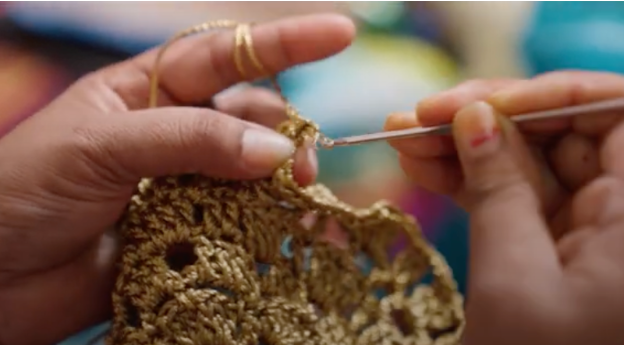Crafting a New Path: How the Handmade Industry is Providing Unique Opportunities for Entrepreneurs
Jun 02, 2023 | Akshay Maharkhede
 The handmade market is a developing one that offers entrepreneurs special chances. This sector includes a wide range of goods, including artisanal foods and drinks, handcrafted jewelry, and home furnishings. Social networking and the growth of e-commerce platforms have made it simpler than ever for handcrafted company owners to expand their customer bases. This article will examine the development of the handmade sector, the benefits and difficulties of launching a business in the sector, the special prospects available there, and successful business tactics.
The handmade market is a developing one that offers entrepreneurs special chances. This sector includes a wide range of goods, including artisanal foods and drinks, handcrafted jewelry, and home furnishings. Social networking and the growth of e-commerce platforms have made it simpler than ever for handcrafted company owners to expand their customer bases. This article will examine the development of the handmade sector, the benefits and difficulties of launching a business in the sector, the special prospects available there, and successful business tactics.
Growth of the Handmade Industry

Handicrafts Market to grow by USD 514.92 billion during 2021-2025 ( Source:prnewswire.com )
The global handmade industry is anticipated to reach $984.9 billion by 2024, according to a report by Etsy. This expansion can be attributed to a number of things, such as the rising popularity of e-commerce platforms, the rising demand for distinctive and personalized products, and the growing awareness of ethical and sustainable production methods. Additionally, there is a growing demand for handmade goods as consumers look for alternatives to mass-produced goods.
How has the pandemic affected the handmade industry and the opportunities it provides for entrepreneurs?
The handmade market and the opportunities it offers for business owners have been significantly impacted by the pandemic. On the one hand, demand for handcrafted goods has increased as people look for more distinctive, customized, and locally manufactured goods. This has opened up new possibilities for company owners wishing to launch or grow their handcrafted enterprises.
The handmade sector has faced a number of difficulties as a result of the pandemic, though. Some makers have found it challenging to find the materials they need to make their products due to supply chain disruptions, shipping delays, and material shortages. Additionally, as physical craft fairs and markets have been discontinued or converted to online formats, many creators have had to adapt to the shift toward online sales.
Despite these difficulties, the pandemic has encouraged creativity and innovation in the handmade sector. Many manufacturers have modified their operations to meet shifting consumer demands by producing face masks and other pandemic-related goods, for example. Through virtual events, social media, and e-commerce platforms, others have discovered new ways to interact with customers online.
Overall, the pandemic has brought attention to the handmade industry's durability and adaptability as well as the opportunity it presents for business owners who are prepared to innovate and pivot in response to shifting conditions.
Opportunities for Entrepreneurs in the handmade industry

Product Design: Independent business owners can design and make one-of-a-kind handmade goods like accessories, apparel, jewelry, and home decor.
Manufacturing: Business owners can set up modest manufacturing facilities to mass-produce handmade goods while preserving the unique personalization that sets them apart.
Retail: To sell their handcrafted goods to customers directly, entrepreneurs can set up retail stores, participate in online marketplaces, or attend craft fairs.
Supply Chain Management: Entrepreneurs can set up supply chains to find the supplies and equipment required for the manufacturing of handcrafted goods, helping other manufacturers in the sector.
Workshops and Classes: By teaching others how to make handmade goods, entrepreneurs may share their knowledge and talents with others by offering workshops and classes.
Digital Marketing: Entrepreneurs can use digital marketing to advertise and sell their handcrafted goods by setting up and maintaining websites, social media accounts, and marketing campaigns.
Consulting: Business owners who have experience in the handmade sector can use it to help other creators and business owners who are considering entering the sector.
Overall, the handmade market offers a variety of chances for business owners, from designing and producing handmade goods to establishing and growing operations centered around them. Entrepreneurs can create profitable enterprises and have a good effect on the sector by utilizing their creativity, ingenuity, dedication to sustainability, and sense of community.
Unique Opportunities in the Handmade Industry
The handmade sector offers a variety of interesting options despite its difficulties. The ability to target specific audiences and niche markets is one of the largest benefits. Producing goods that appeal to particular hobbies or demographics can help handmade business owners succeed more. A loyal consumer base can be developed because of the essential characteristics of handcrafted items, which include customization and personalization. Finally, consumers are placing a greater value on ethical and sustainable production methods, which gives handcrafted firms a chance to stand out from the competition.
Young entrepreneurs have various distinctive scopes in the handcrafted sector, including:
Creative Expression: The handmade sector encourages creativity and innovation, giving young businesspeople a platform to share their skills and visions.
Niche Markets: The handcrafted sector enables business owners to specialize in particular niche markets, giving them the chance to set themselves apart from bigger, more well-known companies.
Sustainability: The handmade sector frequently prioritizes environmental responsibility and sustainable business practices, creating a market for young business owners who are enthusiastic about these issues.
Personalization: Because handcrafted goods may be personalized and customized, young businesspeople have the chance to meet the tastes and wants of specific customers.
Community: The handmade market promotes a sense of community among creators and buyers, giving young businesspeople the chance to establish connections and networks with people who share their interests.
Overall, the handmade market offers young business owners a singular chance to establish brands that value originality, sustainability, customization, and community.
Advantages of Starting a Handmade Business
Low start-up costs: Starting a handmade business may be done with little to no start-up money, which is one of its main advantages. Handmade enterprises, in contrast to standard businesses, can be launched from home or a small studio with only the most basic equipment and materials. This enables business owners to test the market without taking on a lot of debt or financial risk and to begin selling their products.
Flexibility and creative freedom: Makers of handmade goods are free to produce items that are a reflection of their individual tastes and passions. Greater creative fulfillment and business passion may result from this. Additionally, the scheduling and work-life balance options are frequently more flexible in handmade businesses. Entrepreneurs can choose their own schedules and work from home, which is advantageous for people who have families or other obligations.
Personal fulfillment and passion: Owning a handmade business frequently enables business owners to turn their interests or hobbies into successful ventures. For individuals who are enthusiastic about their profession and wish to spread it to others, this can be very satisfying. Starting a handmade business can be greatly influenced by the sense of personal fulfillment that comes from creating something with your own hands and witnessing others love it.
Products that are one-of-a-kind and personalized: Handmade goods can differentiate themselves from mass-produced goods by being one-of-a-kind and personalized. As consumers' tastes and interests become more individualistic, handmade goods can satisfy their desire for personalized goods.
Strong client relationships: Creating strong customer ties is a priority for many handmade enterprises. This may result in devoted clients who appreciate the craftsmanship and customization of handcrafted goods and are prepared to pay more for them. Handmade business owners can overcome difficulties such as economic downturns by developing a devoted consumer base.
Social impact: Supporting neighborhood organizations and advancing ethical and sustainable production methods are two ways that handmade enterprises can positively influence society. Consumer enthusiasm in supporting companies that put a priority on social and environmental responsibility is rising, which can provide handcrafted firms a competitive edge.
These benefits can support handmade business owners in remaining inspired and committed to their objectives despite any difficulties they may encounter. Handmade business owners can create prosperous and satisfying enterprises by keeping expenses down, preserving their creative independence, and pursuing personal fulfillment.
Strategies for Success in the Handmade Industry
Develop a strong brand
Emphasize quality and craftsmanship
Leverage technology and social media
Participate in craft shows and markets
Focus on customer service
Offer unique customization options
Create packaging and presentation that enhances the handmade experience
Build relationships with suppliers and other artisans
Continuously innovate and evolve product offerings
Seek out mentorship and support from experienced handmade entrepreneurs.
If you want to start & grow your handmade business check out our other blog on How To Start And Grow A Handmade Business?
Conclusion
In conclusion, the handmade industry provides unique opportunities for entrepreneurs to establish profitable enterprises and have a positive impact on the sector. The growth of e-commerce platforms, rising demand for distinctive and personalized products, and growing awareness of ethical and sustainable production methods have contributed to the expansion of the handmade industry. Despite the challenges faced by the pandemic, the handmade sector has demonstrated its durability and adaptability. Entrepreneurs can take advantage of a variety of opportunities in the handmade industry, including product design, manufacturing, retail, supply chain management, workshops and classes, digital marketing, and consulting. The handmade sector offers various options for young entrepreneurs to specialize in niche markets, promote sustainability, provide personalized goods, and create a sense of community. The advantages of starting a handmade business include low start-up costs, flexibility, creative freedom, and the potential for a loyal consumer base. Overall, the handmade industry provides an exciting and growing sector for entrepreneurs to explore and succeed in.
Recommended








